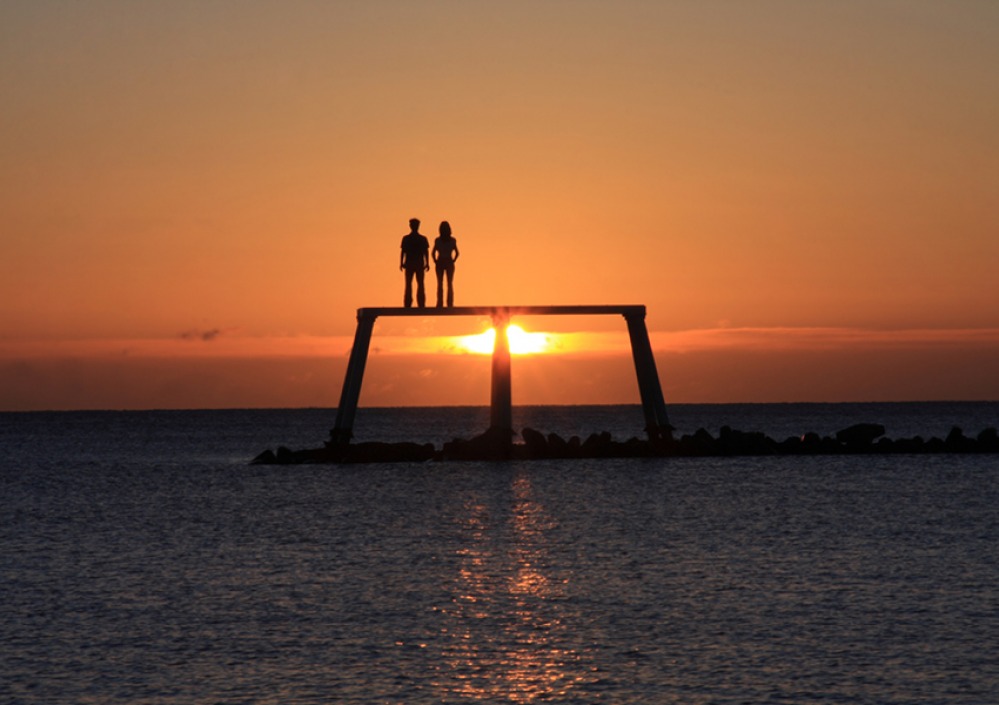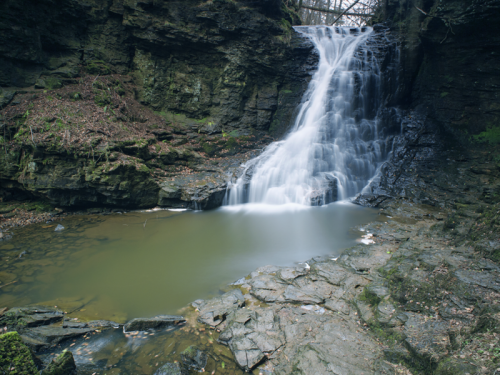The North East's Most Unusual Sculptures to Discover

Let us lead you on a special trail to discover some of the lesser spotted sculptures on display across the North East

Couple
Newbiggin Bay
Sean Henry’s sculpture Couple at Newbiggin looks particularly impressive at sunrise and sunset as the man and woman are silhouetted. The sculpture itself is secured to a steel plinth in the breakwater and during high tides the couple, who face the horizon, appear to stand on the water’s surface.
Hartlepool Monkey
Hartlepool
This bronze statue sits on a plinth overlooking Hartlepool Marina. It represents a monkey engrained in the town’s folklore, which is said to have been mistaken for a French spy and hanged in the 1800s. This tale led to the phrase ‘monkey hangers’ and even inspired the name of Hartlepool United’s mascot.
Eat for England
Seghill
Maybe better known to locals as ‘the giant spoon’, this 15-foot sculpture is part of the South East Northumberland Public Art and Design Initiative, Inspire. Its creator Bob Budd put his creation between two farmers’ fields because he argued the best place for a spoon is where food is produced.
Fiddler’s Green
Tynemouth
Another Ray Lonsdale masterpiece, Fiddler’s Green, a metal statue that’s over 10 feet tall, was made as a memorial for fishermen from North Shields lost at sea. It sits facing out to sea on the North Shields Fish Quay and was unveiled to the public in 2017.

Emily Wilding Davison
Morpeth
This sculpture of a lady sitting on a bench in Morpeth’s Carlisle Park (just a short walk from her grave) depicts Emily Wilding Davison, a suffragette who died after throwing herself in front of the king’s horse at the Epsom Derby. This is one of many sculptures in our region by artist Ray Lonsdale (best known for the Tommy statue in Seaham).
Vampire Rabbit
Newcastle
Not enough of us look up when walking around the city, so we miss out on a lot of the beautiful architecture and decorations of Newcastle’s buildings. Next time you’re at Newcastle Cathedral, look out for the Vampire Rabbit above the rear door of the entrance to the Cathedral buildings. Some say it was put there to scare away grave robbers! The Vampire Rabbit was originally in the stone of the building, but since then has been painted black, with blood dripping from its claws and fangs.
Spirit of the Staithes
Blyth
At first glance this sculpture appears to be an abstract artwork, but there’s more to it than that. Simon Packard’s Spirit of the Staithes features 13 curved steel beams which, from a distance, work together to create an image of a steam train pulling coal trucks in recognition of Blyth’s coal and ship heritage.

Brick Train
Darlington
Many visitors to Darlington will spot the Brick Train on their way into the town. It was created by David Mach in 1997 from (you guessed it) bricks, to celebrate the town’s railway heritage, and was modelled on the iconic steam locomotive Mallard. It’s hollow inside, allowing bats to fly in and out at night.
Statue of Neptune
Hardwick Park
The Statue of Neptune in the man-made Serpentine Lake at Hardwick Park isn’t actually the original sculpture. The first went missing in the 1940s and was never seen again (despite divers searching for it much later). This replica Roman god of water now stands on the original’s stone plinth.
Circle
Huntcliff
Consisting of 10 steel charms, this pretty sculpture by Richard Farrington (better known as The Charm Bracelet to locals) decorates the Cleveland Way, and offers the perfect photo opportunity. It hints at local folklore and traditions and represents the area’s industrial past, and was made at a British Steel plant.
Harry Hotspur Statue
Alnwick
Alnwick’s most famous knight, Henry Percy, also known as Harry Hotspur, is celebrated with this four-metre tall statue. It was unveiled by the Duke of Northumberland in 2010 and is made of bronze. Because Harry Hotspur always had his visor down, the face of Earl George Percy was actually used as reference instead.

Men of Steel
Sunderland
Football fans or gig-goers at the Stadium of Light should head to the riverbank to discover these four sculptures of steel men created by artist Graeme Hopper, designed to commemorate the city’s industrial heritage. The eight-foot-tall men appear to roll lumps of coal up the riverbank.
Silvas Capitalis
Kielder
Visitors to Kielder could previously enter the mouth of this giant sculpture and climb a staircase to take in the view. It was damaged in storm Arwen, and having been made with only glued and pegged timber, this giant head is slowly decaying back into its surrounding landscape.
Terris Novalis
Consett
Depicting a theodolite and an engineer’s level, these large stainless steel sculptures are around six metres tall, and also act as a mile marker for the C2C cycle route. Most unusually, they each have animal feet. They’re based on a 1992 gallery work of the same title.









